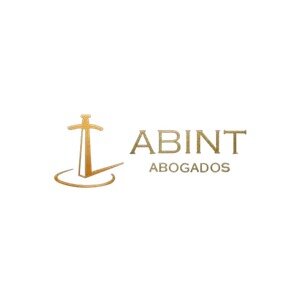Best Native People Lawyers in San Cristóbal
Share your needs with us, get contacted by law firms.
Free. Takes 2 min.
List of the best lawyers in San Cristóbal, Venezuela
About Native People Law in San Cristóbal, Venezuela
The Native People in San Cristóbal, Venezuela, primarily comprise indigenous communities with rich cultural heritage and distinct societal structures. These communities have their own traditions and customs that influence their social and legal interactions. Historically, indigenous peoples in Venezuela, including those in San Cristóbal, have faced significant challenges regarding land rights, cultural preservation, and access to resources. The Venezuelan Constitution and other national laws aim to protect these rights, ensuring equality and recognizing the autonomy of indigenous communities.
Why You May Need a Lawyer
There are several situations where individuals dealing with Native People matters in San Cristóbal might require legal assistance. These include disputes over land and resource rights, cultural preservation issues, concerns about self-governance and autonomy, or conflicts with non-indigenous entities. A lawyer experienced in native peoples' law can help navigate these complex legal areas, ensuring that the rights and interests of indigenous communities are upheld and represented. Additionally, legal guidance might be necessary when addressing government policies that impact indigenous peoples or in cases involving human rights violations.
Local Laws Overview
The legal landscape in San Cristóbal concerning Native People revolves around the recognition of indigenous rights as enshrined in the Venezuelan Constitution, specifically under Chapter VIII, which focuses on Indigenous Peoples' Rights. Key aspects of local laws include the right to ancestral lands, the preservation of cultural identity, and participation in environmental impact assessments regarding their territories. Furthermore, laws provide for the protection of indigenous languages and practices, ensuring that these communities can maintain their unique cultural heritages while participating in broader Venezuelan society.
Frequently Asked Questions
What legal rights do Native People have in San Cristóbal?
Native People have the right to maintain their cultural practices, defend their ancestral lands, and govern themselves according to their customs and traditions as recognized by Venezuelan law.
How are disputes over land rights typically resolved?
Disputes over land rights often involve negotiations between indigenous communities, the government, and any involved private parties. Legal intervention may be necessary to ensure fair treatment under the law.
Can Native People participate in political processes?
Yes, indigenous peoples have the right to participate in political processes, both within their communities and at the national level, to ensure their voices are heard in decisions affecting their lives.
What are some challenges Native People face in San Cristóbal?
Challenges include securing land rights, preserving cultural identity amidst globalization, accessing adequate health and education services, and overcoming historical marginalization.
Is there special legal protection for indigenous languages?
Yes, indigenous languages are protected under Venezuelan law, which promotes bilingual education and the use of native languages in official matters within indigenous territories.
What role do traditional leaders play in legal matters?
Traditional leaders often play crucial roles in mediating conflicts and making legal decisions within their communities, reflecting their customs and governance structures.
Are there legal avenues for cultural preservation?
Yes, the law provides mechanisms for the protection and promotion of indigenous cultures, including safeguarding sacred sites and traditional knowledge.
How do international agreements affect Native People in San Cristóbal?
International agreements, such as the United Nations Declaration on the Rights of Indigenous Peoples, can influence national policies and provide frameworks for domestic legal protections.
What are the common legal challenges concerning environmental issues?
Common issues include protecting indigenous lands from environmental degradation, ensuring participation in environmental decision-making, and addressing conflicts with extractive industries.
Do Venezuelan laws override indigenous customs?
While Venezuelan laws are the supreme law of the land, they recognize and respect indigenous customs, particularly in matters concerning internal governance and cultural practices.
Additional Resources
Individuals seeking further assistance can consult the following resources: - The Office of the Ombudsman (Defensoría del Pueblo), which focuses on the protection of human rights. - The Ministry of Popular Power for Indigenous Peoples, which addresses indigenous issues and rights. - Indigenous community organizations and councils that offer local support and advocacy.
Next Steps
If you need legal assistance regarding Native People issues in San Cristóbal, consider taking the following steps: 1. Contact a lawyer specializing in indigenous peoples' law to discuss your situation. 2. Gather all relevant documents and evidence regarding your case. 3. Reach out to local indigenous organizations for support and guidance. 4. Stay informed about your rights and any legal developments affecting indigenous communities.
Lawzana helps you find the best lawyers and law firms in San Cristóbal through a curated and pre-screened list of qualified legal professionals. Our platform offers rankings and detailed profiles of attorneys and law firms, allowing you to compare based on practice areas, including Native People, experience, and client feedback.
Each profile includes a description of the firm's areas of practice, client reviews, team members and partners, year of establishment, spoken languages, office locations, contact information, social media presence, and any published articles or resources. Most firms on our platform speak English and are experienced in both local and international legal matters.
Get a quote from top-rated law firms in San Cristóbal, Venezuela — quickly, securely, and without unnecessary hassle.
Disclaimer:
The information provided on this page is for general informational purposes only and does not constitute legal advice. While we strive to ensure the accuracy and relevance of the content, legal information may change over time, and interpretations of the law can vary. You should always consult with a qualified legal professional for advice specific to your situation.
We disclaim all liability for actions taken or not taken based on the content of this page. If you believe any information is incorrect or outdated, please contact us, and we will review and update it where appropriate.








